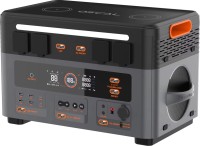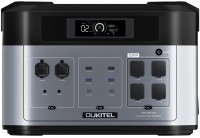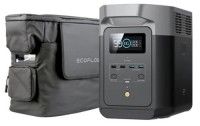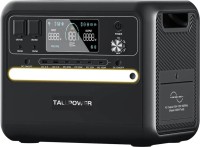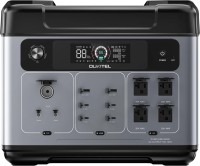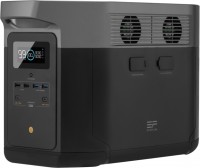BLUETTI AC200MAX
 | Outdated Product $995.67 A large charging station with a complete battery with a capacity of 40 Ah (2048 Wh) and connectors for connecting an external battery. The device is designed to power household and computer equipment with a total power of up to 2400 W (the instruction manual guarantees the station's operability with short-term load increases up to 4800 W). To connect different types of equipment, the device is equipped with a large set of connectors. The BLUETTI AC200MAX charging station has 4 sockets, 4 USB A ports, 1 USB-C port, DC5521 connector (car cigarette lighter) and two fields (15 W each) for wireless phone charging. Since the station has large dimensions (387x420x280 mm) and heavy weight (28.1 kg), there are handles on the body for carrying the device. |
BLUETTI AC200MAX | ||||||||||||||||||||||||||||||||||||||||||||||||||||||||||||||||||||||||||||||||||||||||
|
| |||||||||||||||||||||||||||||||||||||||||||||||||||||||||||||||||||||||||||||||||||||||
A large charging station with a complete battery with a capacity of 40 Ah (2048 Wh) and connectors for connecting an external battery. The device is designed to power household and computer equipment with a total power of up to 2400 W (the instruction manual guarantees the station's operability with short-term load increases up to 4800 W). To connect different types of equipment, the device is equipped with a large set of connectors. The BLUETTI AC200MAX charging station has 4 sockets, 4 USB A ports, 1 USB-C port, DC5521 connector (car cigarette lighter) and two fields (15 W each) for wireless phone charging. Since the station has large dimensions (387x420x280 mm) and heavy weight (28.1 kg), there are handles on the body for carrying the device.
Always clarify the specifications and configuration of the product with the online store manager before purchasing.
Catalog BLUETTI 2025 - new arrivals, bestsellers, and the most relevant models BLUETTI.
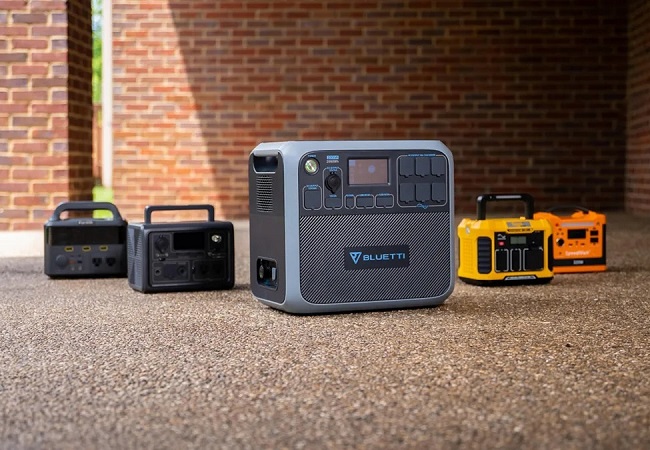

The first example of a modular design from the BLUETTI charging station range was the productive AC200MAX model. Its standard capacity can be increased using additional battery packs.
Expansion of standard capacity
The internal battery of the model is made using the popular lithium-iron-phosphate technology and has a capacity of 2048 Wh. The same is produced for the BLUETTI B230 expansion modules, and the increased-volume B300 battery blocks have a capacity of 3072 Wh. Up to two additional batteries of the above-mentioned modifications can be connected to the station. In the latter version, the total capacity of the assembly will be 8192 Wh, which is quite enough for long hours of autonomous power supply of the connected equipment.
High productivity
The model normally works with loads with a total power of up to 2400 W and can withstand up to 4800 W of pulse power. 230-volt consumers are connected to the station through one of four sockets with pure sine voltage. At the same time, the device has a quartet of USB A ports (two of them support fast charging Quick Charge 3.0 with a power of 18 W), one USB type C at 100 W, a couple of DC outputs and a 12 V cigarette lighter socket. On the upper platform of the device body, two wireless charging zones are distributed (15 W each).
Touch screen
The portable power station provides the user with a touch screen and wireless communication via Bluetooth(for remote access to settings from a smartphone). The only problem with the model was charging from a socket - the full procedure of "charging" the battery takes up to 6 hours, which is an unaffordable luxury with frequent power outages. Solar panels solve the problem - a combined method of charging from the network and with the help of photocells takes a little more than 2 hours. But only on a sunny day and on condition that the panels are purchased separately.



